
Brenda Rae earns her ovation in O18 Lucia
ReviewOn Friday night, Opera Philadelphia unveiled a new co-production with the Wiener Staatsoper of Donizetti’s Lucia di Lammermoor. This bel canto staple is O18 festival’s most “conventional” offering, but it still delivers plenty of cutting-edge, vibrant and fresh elements. A popular 19th-century tragedy, Lucia balances out the rest of the O18 festival’s less traditional offerings. Excellent casting and impressive musical preparation make this production an excellent reminder of why we love opera.
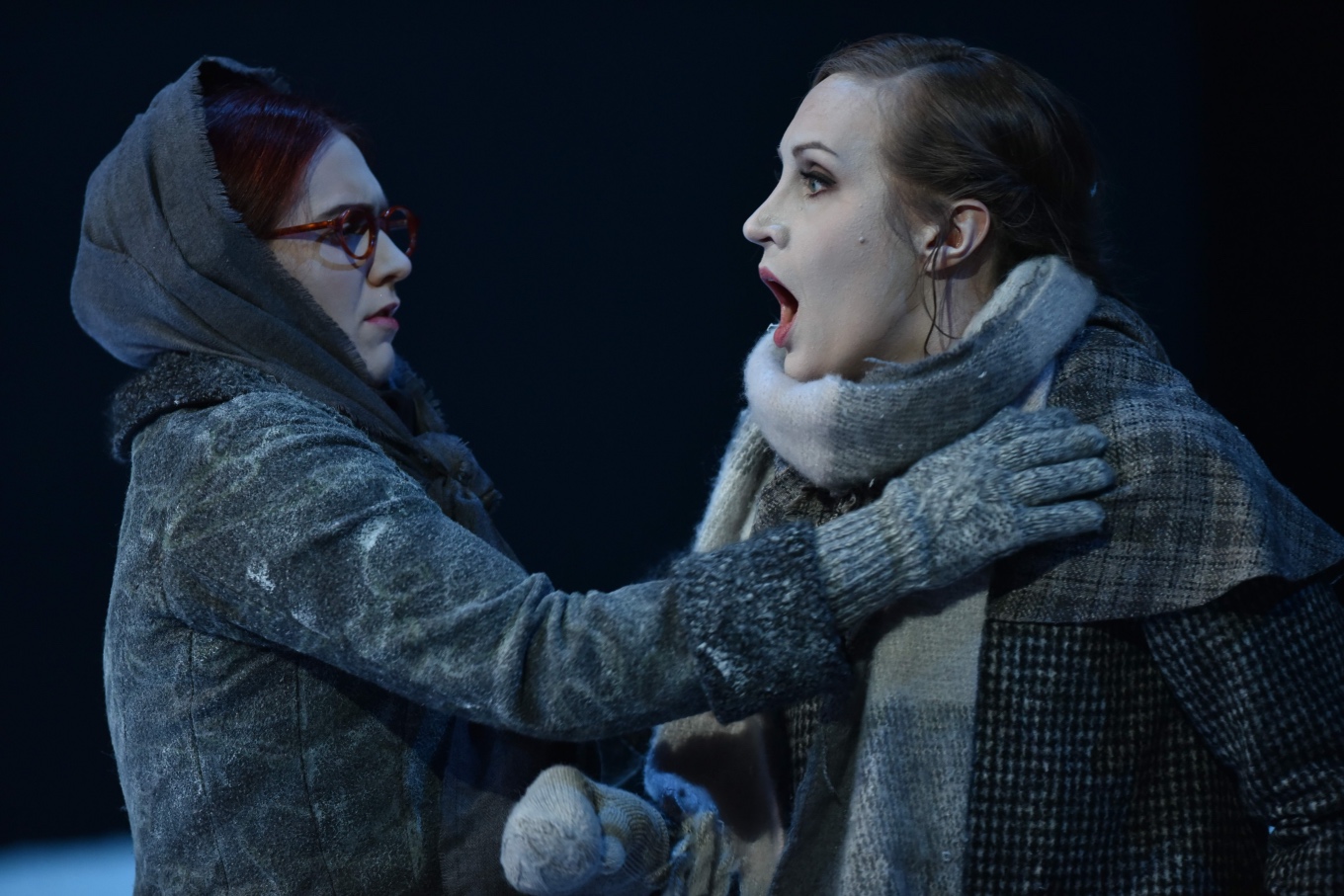
The evening featured world class bel canto lines, alongside mind-blowing vocal pyrotechnics, making it some of the best singing that the Academy of Music has heard in a while. Brenda Rae, in the titular role, earned herself impassioned applause from the audience after both of her major arias, as well as in her final curtain call. She sang expressively, and in perfect synchronicity with the orchestra, and the musical chemistry she shares with conductor Corrado Rovaris is clear. Rae’s voice truly came to shimmering life in her ornamentations. Her choices in the embellished delivery of “Quando rapito in estasi” were tasteful, elegant, and vibrant. Rae’s virtuosic mad scene earned her a mid-scene standing ovation by patrons seated in the orchestra.
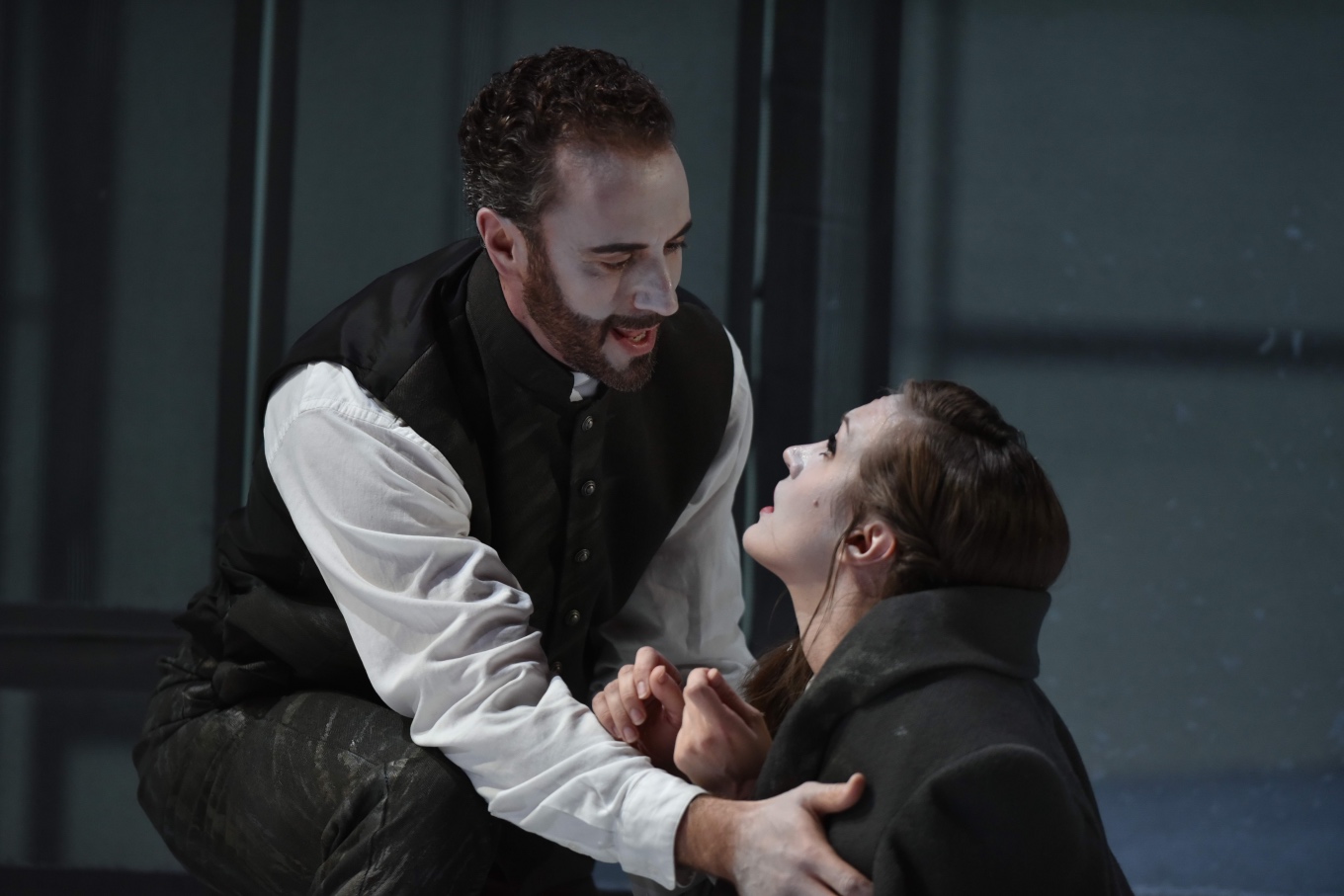
The entirety of the young North American cast was outstanding. Tenor Michael Spyres, as Edgardo, had a particularly resonant and legato sound from one vowel to the next. While the Academy’s acoustics are known to be, at times unfavorable for many tenors, Spyres voice had no chance of being swallowed up. A Philadelphia favorite, baritone Troy Cook, sang the role of Enrico with his beautiful and passionate sound. All of the supporting roles were sung at the highest level, as well. Andrew Owens (Arturo), Adrian Kramer (Normanno), and recent AVA grad, Hannah Ludwig (Alisa), all made terrific Opera Philadelphia debuts.
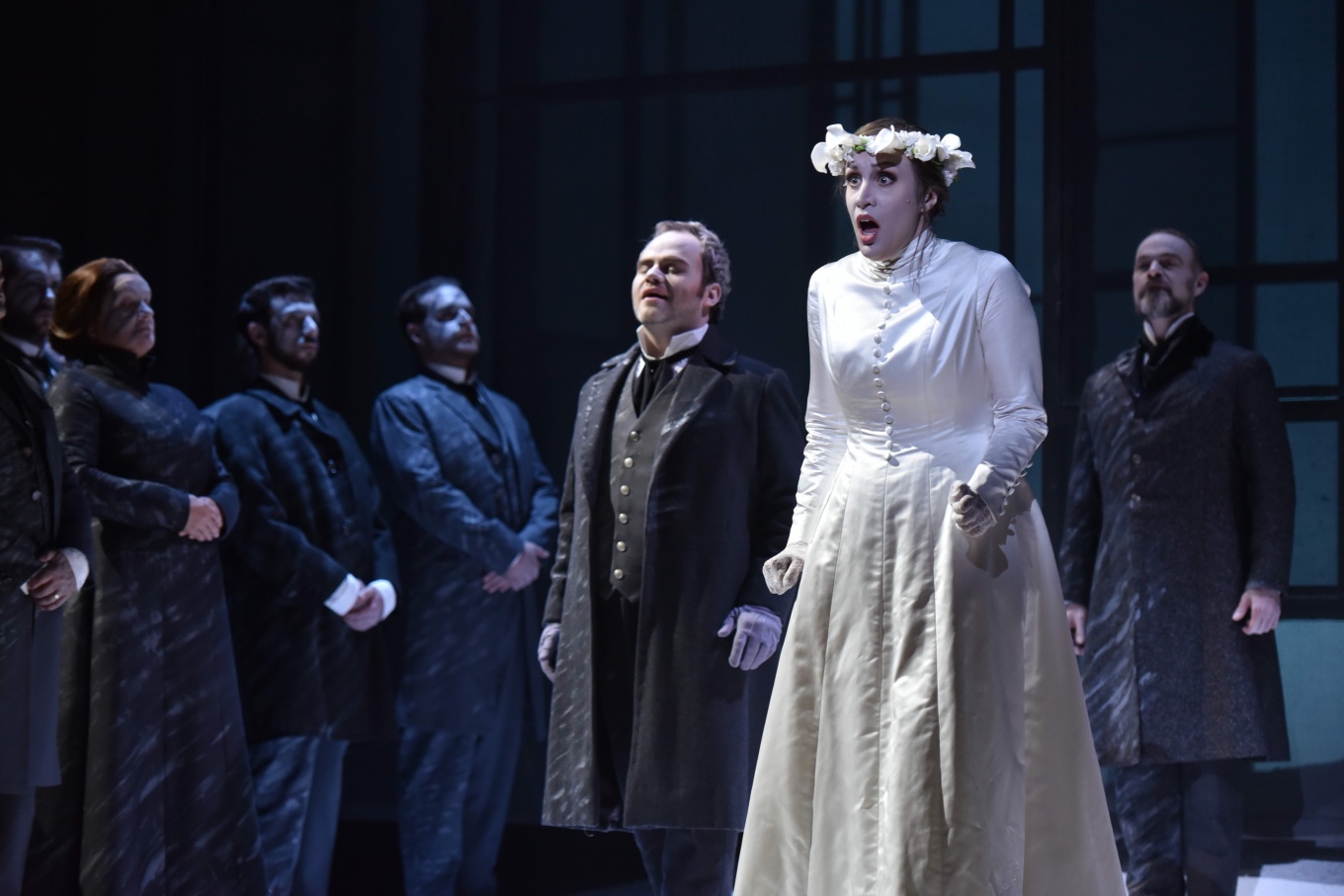
Audiences are fortunate to have the opportunity to hear Christian Van Horn in the role of Raimondo, who is the 2018 Richard Tucker Award winner. Van Horn delivers a stupendous sound with artistic nuance that leaves you wanting to hear more.
The orchestra, conducted by Corrado Rovaris, was in prime form from the very first tones of the overture. Maestro Rovaris kept an energetic forward momentum throughout the evening, while also reining in moments that seemed to want to to race ahead.
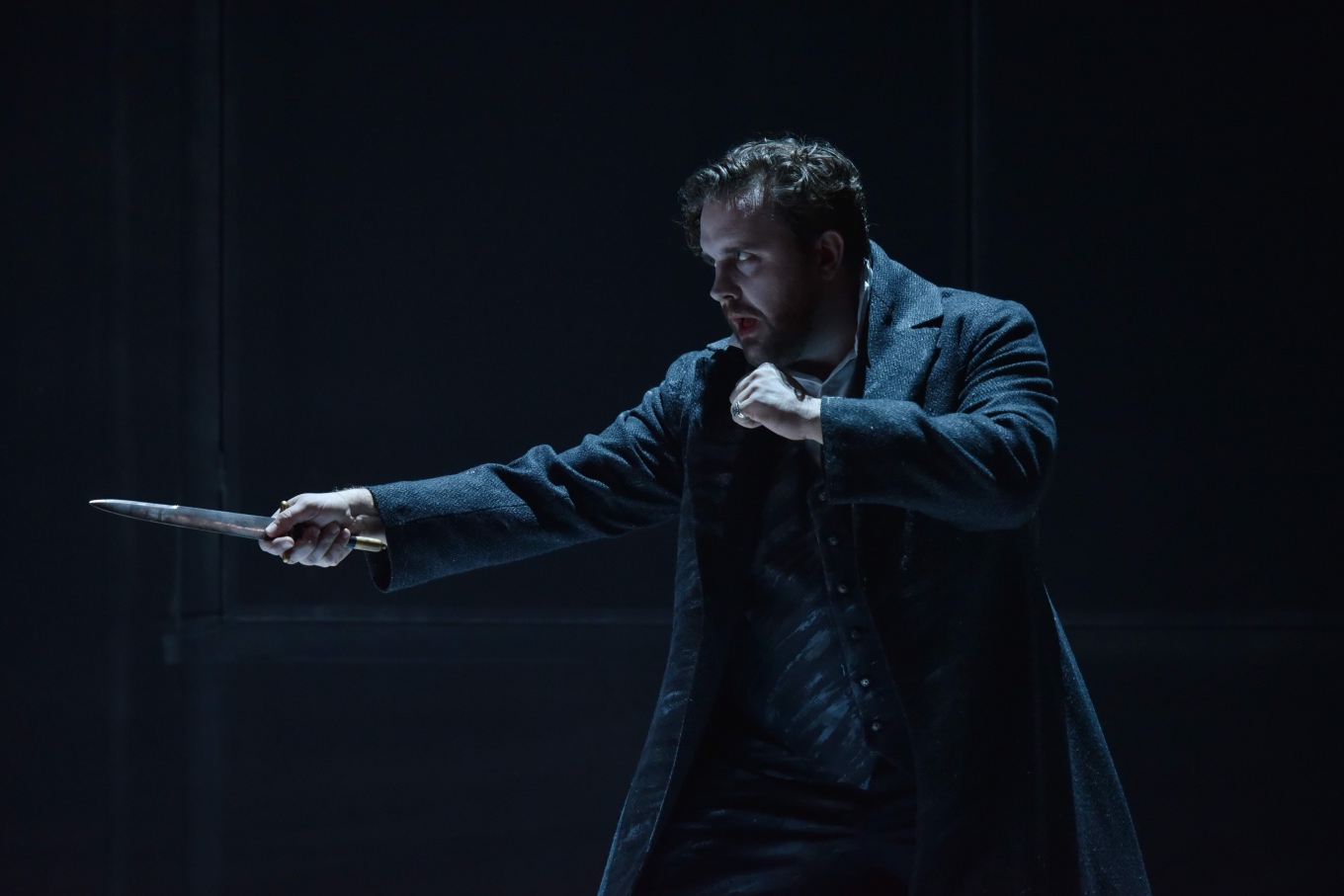
The production itself casts a bleak and ethereal portrayal of a Scottish landscape. Problematic is the state of Lucia from her initial entrance in Act One. She appears unhinged and greatly disturbed when we first see and hear her onstage, which unfortunately causes her character to lose some of its infamous narrative arc. The production abandons the possibility of shock and anticipation for Donizetti’s most famous writing, Lucia’s Mad Scene. Nevertheless, Rae’s sublime singing and physicality is still effective and breathtaking, as she sings the famous duet with the glass armonica while lying on her back.
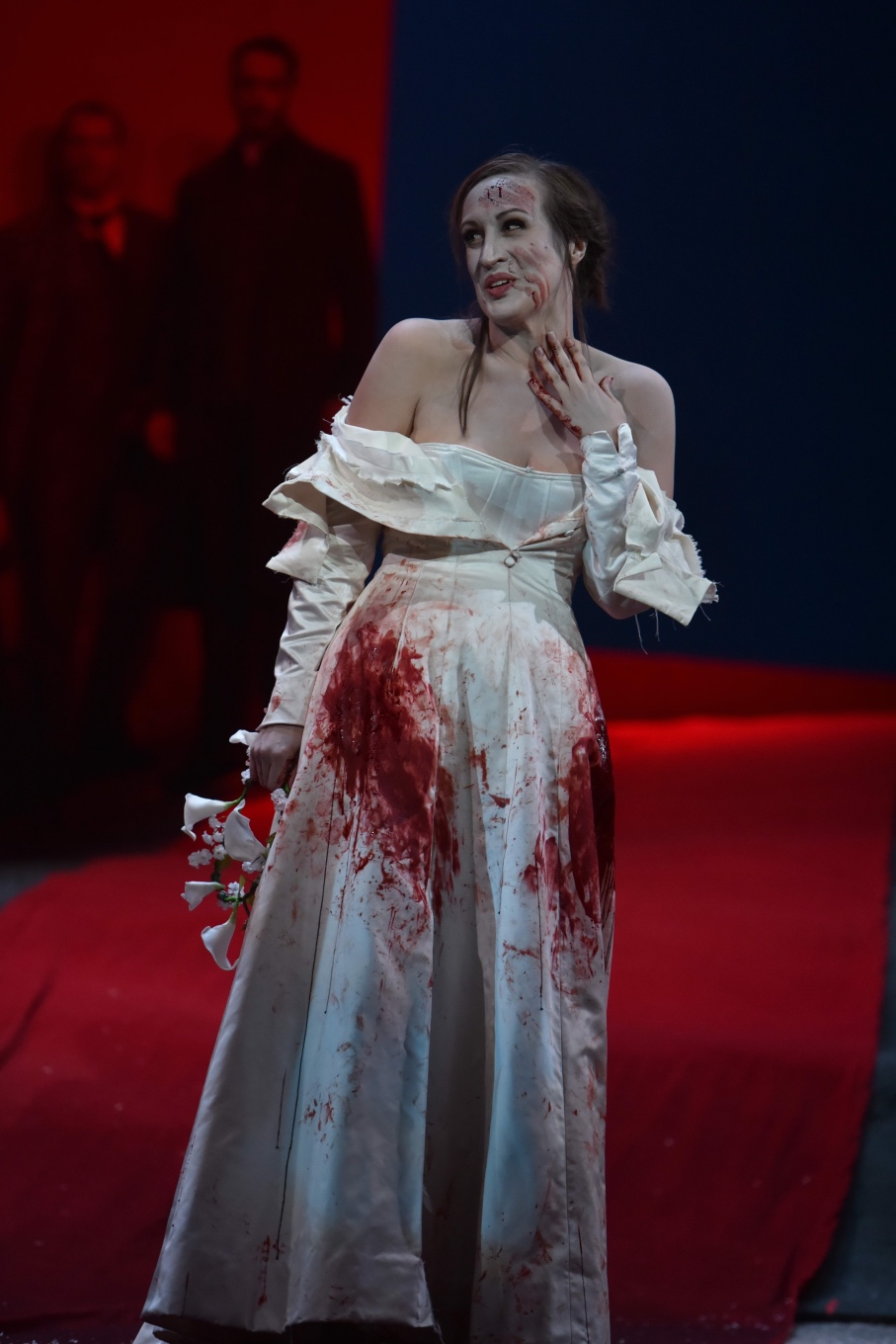
The opening night performance had some unfortunate extra-musical interruptions, such as a tripped opening curtain, an all-too-visible exit sign from the backstage area for a large part of Act II, and a noisy cart being pushed in the hallway during delicate moments of the score. In spite of these intrusions, however, opening night of Lucia di Lammermoor was a great accomplishment for Opera Philadelphia.
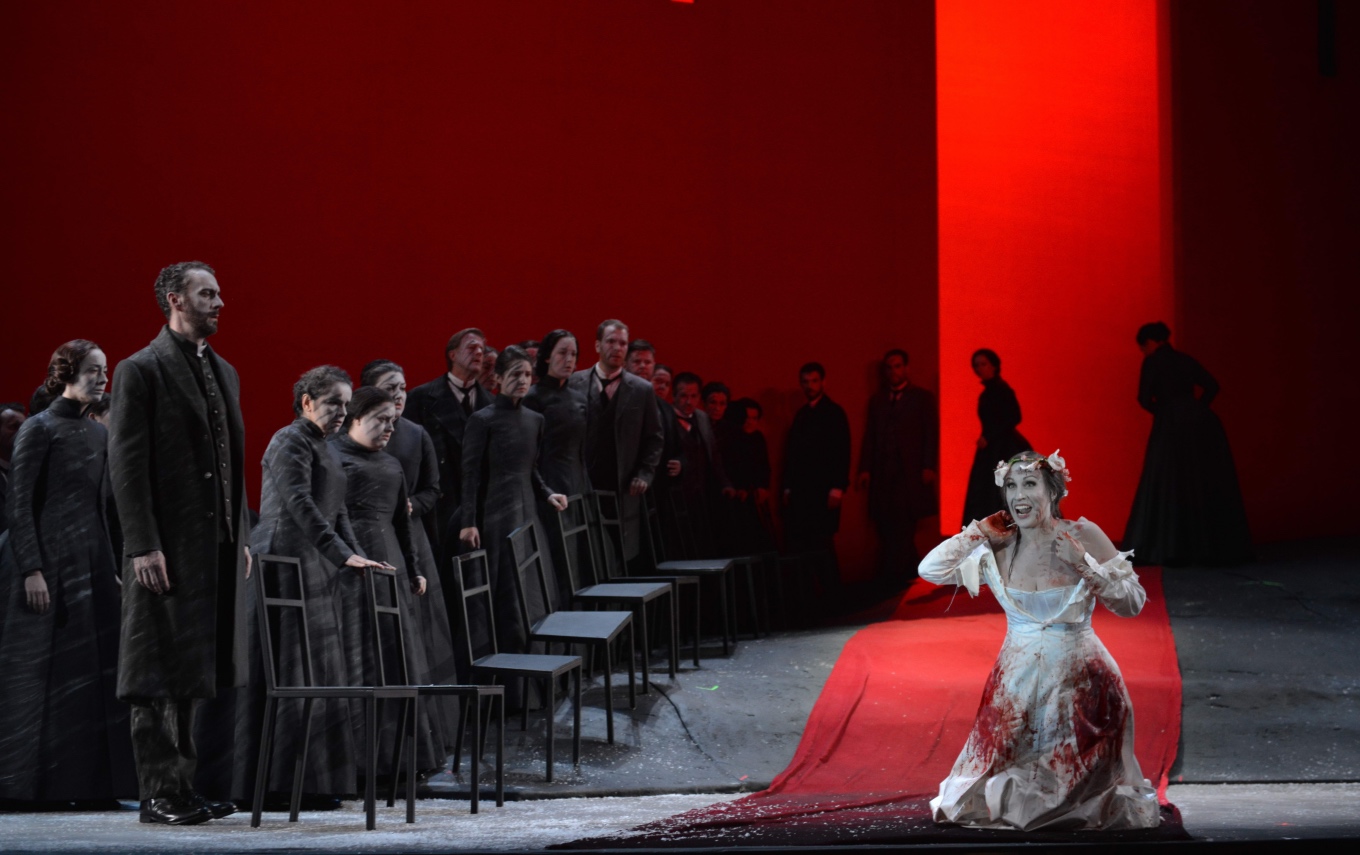
As a musical force, opera is an art form that relies on the power of the unamplified human voice to move audiences. The voices of this cast undoubtedly provide the power to bring this opera to life. Whether you have never seen Lucia before, or you are a bel canto connoisseur, these vocalists and musicians make for a rewarding and awe-inspiring night at the opera.
Lucia di Lammermoor runs at Opera Philadelphia runs through September 30. For details and tickets, click here.


Comments